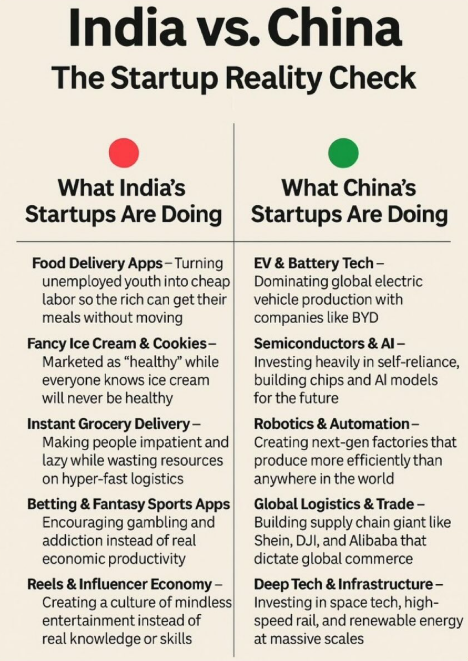this is a pretty interesting hypothetical scenario that i have been thinking about for quite a while. let’s start from the beginning. picture this. you just gave the cat exam and you have received an interview call from iim ahmedabad, considered by many as the greatest business school in this country. you’re nervous yet excited but you have done the work. you begin your interview preparations to absolutely obliterate the interview panelists in the interview.
the day has finally come. you reach the venue more than 30-45 minutes early. you take a seat in the waiting area and try to focus on keeping your cool. you’re confident of your preparation. at the same time, your heart is beating crazy fast. your entire career depends on this one interview. this interview might very well be the turning point of your personal & professional life. everything hinges on the next one hour. your name is called. you go inside and greet the interview panelists and take your seat. no turning back now. the interview begins. an hour goes by. you exit the building after completing your interview. the interview went well, you think. but you’re not certain. only time will tell now.
cut to a few weeks later. you have been sitting on top of your inbox for every single day waiting for that one email that will decide your fate. one fine day, the email arrives. you see the notification and your heart stops. you open the email with your hands shaking. you’ve done it! congratulations! you have successfully secured admission at iim ahmedabad’s flagship pgp-mba program!
after a couple of days, an absolutely mind numbing news reaches your ear. you cannot for the life believe it at first but it’s official and it’s very real. iim ahmedabad has just announced that they are permanently dissolving all of their placement committees and are stopping all placement drives effective immediately from this academic year. what the fuck? you say. you don’t have any other b-school converts left so you have to make a decision. there goes your 50lpa mckinsey ppo down the drain.
sorry for the long build up folks (nah im lowkey proud of that), but here is your hypothetical scenario..
what would you do if you got into iim ahmedabad and could not sit for placements?
as obvious as that question might appear, it’s actually not that simple to answer. there are huge consequences that hinge on your decision. let’s try to analyze all possible angles of this scenario and what could end up playing out depending on whether you choose to go to iim-a or not.
now you can’t deny the power of a strong network right? by choosing to go to iim-a, you will have the chance of reliving college life, making lifelong friends and studying with some of the smartest brains in this country. the best of the best all in your classroom. you will gain access to an insane alumni network that you could tap into anytime and find opportunities that would be borderline impossible for a non iim graduate to find.
the flagship mba program at iim-a costs around 26 lakhs (excluding food, electricity & other utilities) give or take a few. any possibility of calculating a tangible roi is out of the question. there’s no guarantee that you will graduate with a job let alone a high paying job. once you go there, you’re all on your own.
on one hand, you will still have the safety net of having a tier-1 mba from the best iim in this country. you could just hit cold apply on hundreds of off campus jobs and you are sure to get a decent number of interview invites because of your freshly minted iim-a degree.
on the other hand, you’re not really sure if shelling out 26+ lakhs is really worth it. if you’re taking an education loan, its even harder for you to take a decision. you will have a 26+ lakhs ed loan (excluding interest btw) hanging over your head right after you graduate which will force you to play it safe in your life for at least the next 6-8 years.
you might as well buy a perplexity pro subscription to simulate a portfolio of fast growing small cap stocks and yolo this money like an absolute madlad (yeah no one’s gonna do that but you get the gist). you could start your own startup and go all in with this money as your seed capital. the possibilities of utilising this money elsewhere are endless.
it also depends on what your risk profile is. if you happen to come from a well off family and you currently do not have any such family & financial responsibilities towards anyone, it might make absolute sense for you to go ahead and do it. if not, you will have to take a loan and as we discussed already, it remains a risky proposition in a scenario where you are not able to secure a high paying job.
there are two reasons why i bring this up though. indian b-schools are very unlikely to dissolve their placement committees anytime soon. campus placements have become a huge part of indian academics where you will see many placement committees in india being run by students themselves. however lets take it a look at the placement scenarios in b-schools abroad.
what happens in foreign b-schools?
the first reason which prompted me to write about this hypothetical is the fact that foreign b-schools such as hbs, stanford gsb, iese, insead, etc do not have ‘official’ on-campus placements like the way indian b-schools do.
instead, these b-schools conduct a multitude of other activities that help their students find jobs once they graduate. for instance, regular career fairs are organized where students and recruiters can meet and network with each other and explore various job opportunities. various workshops are conducted by these b-schools on how to polish your cvs/resumes, how to nail interviews and so on.
every year select recruiters from areas like consulting, investment banking, etc still do like to come on campus and hire students directly but it’s not guaranteed or centrally managed by the b-schools like in india.
apart from this, many top tier firms conduct annual off-campus placement drives specifically for hiring the graduates of a select b-school or the graduates of all m7 b-schools. even to just be eligible for these roles, you are required to come from a specific tier 1 b-school. students also have unparalleled access to the alumni networks & alumni associations of these b-schools through which they can take the help of their alumni to land roles.
another popular route for foreign b-school graduates is either to start their own startups or to pursue entrepreneurship through acquisition (eta) and launch search funds (a search fund is an investment vehicle through which the entrepreneurs or ‘searchers’ of the firm raise capital from investors to search and acquire a small business and then run it full-time for usually a period of 4-7 years before selling it off). the search fund model is seeing an increasing interest at these b-schools every passing year. i do see this model being replicated more in indian b-schools in the next 5 years or so.
basically, students at these schools are not guaranteed any placements. they have to work for it even harder than their indian counterparts. as you can see the entire placement process is quite different at these b-schools compared to indian b-schools. i came across this fact very recently and at first i could not believe my ears.
according to harvard’s website, the annual cost of attendance for their mba program (2025-2026) is around $126,536. for a 2 year course, that’s equal to roughly $253000 i.e. rs. 2.17 crores. that’s actually insane. imagine enrolling in a b-school by paying 2.17 crores and you are not even guaranteed to get a job! well we don’t have to imagine it in this case.
the second reason why i brought up this hypothetical is because of a real life case study of three students who were enrolled in iim-a and yet chose to not sit for placements to eventually build one of india’s most trustworthy and loved financial content brands.
when hypothetical meets real life at iim-a
bhanu harish gurram, shrehith karkera and pawan kumar rai were three students studying at iim-a’s pgp mba program in the batch of 2018. the three of them knew that the traditional 9-5 corporate grind was not made for them so they had been working on their startup idea of a newsletter that simplified financial & business news for students. after working on their startup for a while, bhanu, shrehith and pawan decided to go all in by doing one of the craziest things a person could ever do at a b-school. they chose to voluntarily opt out of iim-a’s placement process and focus full-time on building their startup. the startup’s name? finshots! at the time of taking this seemingly extreme step, bhanu, shrehith and pawan had a combined education loan of almost 60 lakhs and had only about 20k in their bank accounts.
bhanu, shrehith and pawan had also applied to one one of iim-a’s fellowship programs called the “IIMAvericks” fellowship. this fellowship is open to all iim-a students and recent alumni who have recently started up on their own. the fellowship provides a monthly stipend to the entrepreneurs for two years so that the founders can fully focus on their ventures without having to worry about their finances.
how insane do you have to be in your heads to not sit for placements (voluntarily) at iim fucking ahmedabad. imagine watching all your friends get placed with seven figure offers at multinational firms while you’re living off a monthly stipend building a startup. everyone will think you’re crazy. mad props to these guys.
what would i do?
if i was presented with this hypothetical, i personally would still choose to pay the entire tuition fee of 26 lakhs and go for iim-a’s mba program even if it meant that i could not sit for campus placements. i would get to live, study and work with some of the most brilliant minds in the country. i would get to make lifelong friends and acquaintances while getting a chance to relive college life. not to forget the brand and pedigree that the degree will bring with it.
we also saw how students studying in b-schools abroad are already living this hypothetical where they have to hunt and find their own jobs without any direct help from their colleges. in my opinion, all of the above factors when coupled with each other far outweigh the tradeoff of not sitting for placements.
what would you do if presented with this hypothetical? would you pay 26 lakhs to go to iim-a and not sit for placements? or do you think that it won’t be worth the huge financial investment? super curious to hear out everyone’s opinions. hit me up with your thoughts/opinions on my linkedin or in the comments below and i’ll get back to you. until next time folks and thanks for reading this 10 minute long blog!


